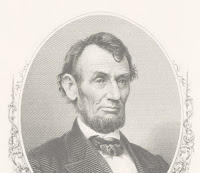At long last, it’s here. One week
from the date of
this post, the nation begins counting votes in the 2020 presidential election. Before that starts, we have things to say about the last days of the campaign and what’s at
stake. We’ve been writing about the 2020 election for two years. On the eve of
hearing the people speak, we offer an updated perspective.
The Race
Many things could happen, though they
seemingly
fall into three broad categories: (1) a decisive Joe Biden win; (2) a
historic Donald Trump comeback; or (3) chaos resulting from a too-close-to-call
election that encourages ballot challenges and litigation initiated by Trump.
With incredibly high stakes, the country sets sail on an unpredictable journey
that will likely speak volumes about America’s future.
Not much has changed going into the
final week from the situation we detailed on October 20. Biden enjoys a solid lead in the
national polls and a narrower, but not insubstantial, lead in the key
battle ground
states of Pennsylvania, Michigan, and Wisconsin. Trump, however, retains a
precarious path to victory. No “
October Surprise” that might shift the race has occurred
and, as the clock ticks, one appears less and less likely.
The Last Debate
Trump and Biden faced off October 22
in their final televised debate
. Under tight control by moderator Kristen Welker of NBC, Trump interrupted Biden muchless frequently than in
the first debate and, for the most part, stylistically comported himself much
better than on September 29. That doesn’t mean he didn’t lie and mislead as
he’s done throughout his term. Fact checkers still had a busy night.
In post-debate ads and appearances, Trump tried capitalizing on Biden’s statements about
transitioning from the oil industry in fighting climate change, especially in petroleum-rich
states like Texas and Pennsylvania. The right- wing media claimed that would
change the race. Most mainstream pundits,
however, lauded Biden’s performance. Biden won CNN’s instant poll, 53-39, with
women rating him higher by 60-35. Trump didn’t close his gender gap.
CNN
Instant Poll conducted by SSI's
Perhaps not unexpectedly for three
lawyers, 
Left
to Right: Rob Wiley, Henry Jones, Woodson Walker
among us concurring and dissenting opinions emerged. Woodson,
though agreeing Biden did himself little harm, contended he missed
opportunities for a clearer, more forceful statement on racial justice and a
more cogent, better organized explanation of his coronavirus plan. Rob
disagreed and thought the former vice president performed admirably in nearly
all respects. Henry noted the inherent difficulty in standing on a stage alone
before millions of people while facing a hostile, mendacious, adversary and a
media-savvy moderator.
Henry’s observation suggests we ought
not forget the notion MSNBC host and former senate staffer Lawrence O’Donnell reminds viewers of every chance he gets. The
think-on-your-feet skills
needed for presidential debating bear little relationship
to the capacity for deliberation and reasoned, data-driven decision making required
of a president. On this score, the three of us agree. Biden wins hands down.
After the debate, the candidates,
their running mates, and surrogates (like former President Barack Obama) hit the road, barnstorming the battle ground states and
blitzing the airwaves with ads wherever they had money to buy time. Biden has
more money, so more people will see his ads in more places. Trump kept holding
his signature rallies, virus or no virus. Vice President
Mike Pence continued holding rallies though five members of his staff tested
positive for the virus. Biden and running mate Kamala Harris continued their restrained
approach to campaigning in the pandemic.
The Stakes
The horse race is what it is, and
we’ll know the
outcome soon enough. What this
election means transcends the contest. We accept the conclusions of those like
the bipartisan group of over 500 national security experts, including 22
four-star military officers, who back Biden, the Republican-inspired Lincoln Project, and the plethora of publications
like USA TODAY and the New England Journal of Medicine that don’t usually endorse candidates but have done
so this time. They’ve recommended that their diverse audiences support Biden because
they see another four years of Trump as an existential threat to American Democracy.
We need not again list the current president’s sins. We’ve
cataloged them and commented on them time after time in the nearly four years he
has been in office. We have pointed out the ways in which his behavior
disrespects the rule of law, denigrates our most significant
and important
institutions, and undermines our standing in the world. Indeed, if Biden wins,
coronavirus notwithstanding, he may face his biggest challenge in restoring
America’s standing among nations, particularly our traditional allies in Europe
and Asia.
Should Biden capture the presidency,
we will have plenty to say about what tasks he should prioritize and about how
he should navigate the difficult job of
putting the country
back together again. For now, it’s enough to say we think it imperative the
American people give him the job.
This is crunch time. Millions have
already
voted,
navigating around the voter suppression efforts of Trump and his Republican cronies. The
signs have been positive and turnout may break all kinds of records. But this
isn’t done yet. As we write and post this, another week of voting remains. That
time is too valuable for anyone not to make use of it.Vote! We believe our democracy hangs
in
the balance.













































